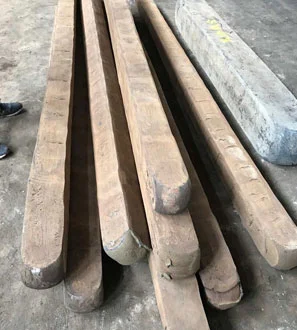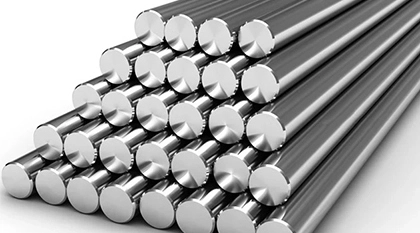Thank you for your
attention on Yesheng !
Titanium rods and titanium bars grades and sizes
Titanium Rod Grades
Titanium rods are available in a wide range of grades, each with its own unique set of properties. Some of the most common titanium rod grades include:
Grade 1 (ASTM B348): This is the most ductile and formable titanium grade, making it well-suited for applications where high formability is required. However, it has lower strength and corrosion resistance than other grades.
Grade 2 (ASTM B348): This grade is similar to Grade 1 but has slightly higher strength. It is often used in applications where moderate strength and formability are required.
Grade 4 (ASTM B348): This grade is known for its excellent corrosion resistance, making it a good choice for applications where exposure to corrosive environments is a concern. However, it has lower strength and formability than Grades 1 and 2.
Grade 5 (ASTM B348): This is the most common titanium rod grade, accounting for over 70% of all titanium rods used worldwide. It has a good balance of strength, corrosion resistance, and formability, making it suitable for a wide variety of applications.
Grade 7 (ASTM B348): This grade is known for its excellent high-temperature properties, making it ideal for applications that operate in hot environments. However, it has lower strength and formability than Grade 5.
Titanium Bar Grades
Titanium bars are also available in a variety of grades, with similar properties to those of titanium rods. Some of the most common titanium bar grades include:
Grade 1 (ASTM B265): This grade is similar to Grade 1 rods and is well-suited for applications where high formability is required.
Grade 2 (ASTM B265): This grade is similar to Grade 2 rods and is often used in applications where moderate strength and formability are required.
Grade 3 (ASTM B265): This grade is known for its good strength and formability, making it a good choice for applications where both strength and ductility are important.
Grade 4 (ASTM B265): This grade is similar to Grade 4 rods and has excellent corrosion resistance. It is often used in applications where exposure to corrosive environments is a concern.
Grade 5 (ASTM B265): This is the most common titanium bar grade and is used in a wide variety of applications due to its good balance of strength, corrosion resistance, and formability.
Titanium Rod and Bar Sizes
Both titanium rods and bars are available in a wide range of sizes, with diameters ranging from 1.0 mm (0.040") to 508 mm (20") and lengths ranging from 100 mm (3.94") to 6100 mm (240").
Titanium Rod and Bar Specifications
Titanium rods and bars are typically supplied in the following specifications:
Material: Grade 1, 2, 3, 4, or 5 titanium
Finish: Mill finish, ground, polished, or coated
Heat treatment: Solution treated and aged (Q&T), annealed, or stress relieved
Tolerances: ±0.025 mm (0.001") per inch for diameter and ±0.25 mm (0.010") per meter for length
Additional Considerations for Titanium Rods and Bars
In addition to the grade, size, and specifications listed above, there are a few other factors to consider when selecting titanium bars for sale:
Surface finish: The surface finish of the titanium rod or bar will affect its appearance, corrosion resistance, and ability to be machined.
Heat treatment: The heat treatment of the titanium rod or bar will affect its mechanical properties, such as strength, ductility, and hardness.
Specialty grades: There are a number of specialty titanium grades available for applications with specific requirements, such as high strength, high temperature resistance, or improved corrosion resistance.
 English
English  日本語
日本語  한국어
한국어  français
français  Deutsch
Deutsch  русский
русский 









